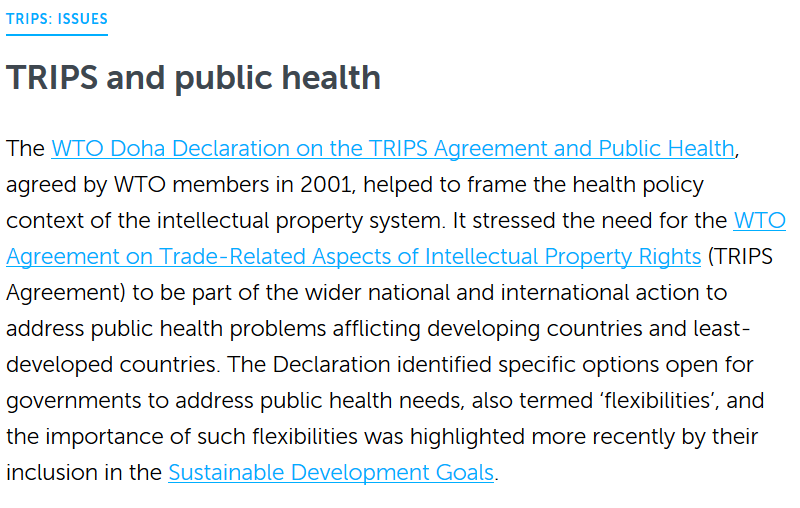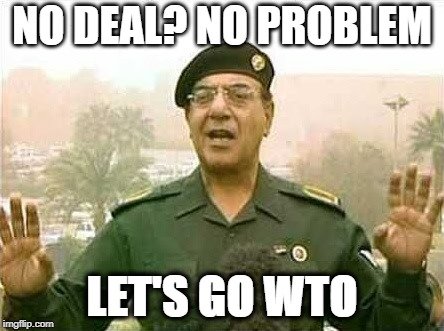If the govt considers that the patent-owner is selling too expensively, or is failing to supply the medicine at all. What it can do is to force the patent-owner to license someone else to produce generic versions.
1/10
1. Normally the government has to have negotiated a voluntary licence first. If that fails a compulsory licence is possible.
2. In an emergency, negotiating a voluntary licence can be skipped.
2/10
WTO rules = the Trade-Related Intellectual Property Rights (TRIPS) Agreement
3/10
4/10
5/10
6/10
@jamie_love has often pointed out instances when the US has used compulsory licensing itself, but for other products not drugs.
7/10
nhs.uk/conditions/bio…
8/10
wto.org/english/tratop…
9/10








